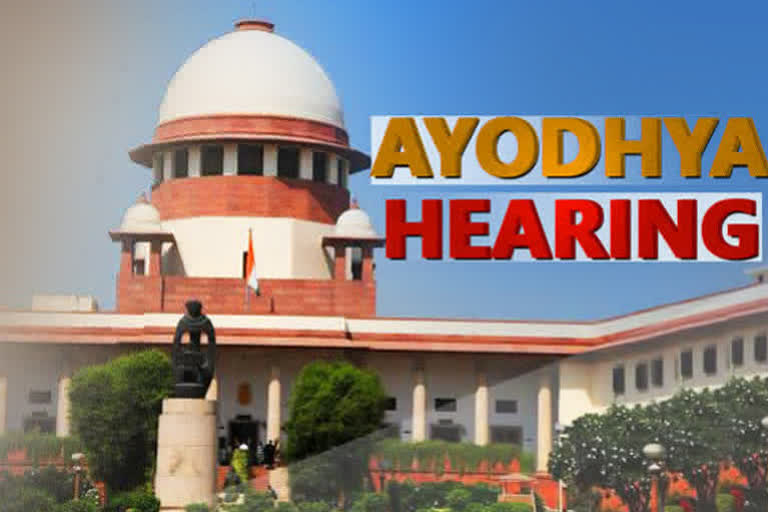New Delhi:The birthplace of Lord Ram at the disputed site in Ayodhya can also be treated as a "juristic entity" besides the deity himself and is capable of filing lawsuits to lay claim over the land, a Hindu party told the Supreme Court on Monday.
A senior counsel for deity 'Ram Lalla Virajman' was responding to the vehement objection of the Muslim parties that the birthplace of the deity cannot be accorded the 'juridical' status as this plea of the Hindus would oust the Muslims and their any legal claim over the disputed Ram Janmbhoomi-Babri masjid site.
"If the land believed to be the birthplace of Lord Ram is treated reverentially by Hindu public and they have sought to offer worship there as a consequence of 'such' belief (not merely because they have faith in Lord Ram as a deity), the land itself may be treated as a juristic entity alongside the idol that may be believed to manifest Lord Ram as a deity," senior lawyer K Parasaran told a 5-judge Constitution bench headed by Chief Justice Ranjan Gogoi.
The bench, which was hearing the politically sensitive case on 34th day, asked Parasaran as to whether "it has been held that any Hindu temple, including the land, has been accorded the juristic personality".
The senior lawyer told the bench that the belief of Hindus in particular deities, temples and their judicial status can be decided on "case-to-case basis" under Hindu laws and should be aimed at protecting the rights of deities and worshippers.
"The deeming fiction to identify the deity as a juristic person is to ensure that the rights of worshippers, as also the jurisdiction and rights of the deity, are protected. In the absence of a juristic person, where worship is offered to a formless deity, neither the deity's nor the worshipper's rights can be effectively protected," he told the bench which also comprised Justices SA Bobde, DY Chandrachud, Ashok Bhushan and SA Nazeer.
The faith of Hindus is that the spirit of Lord Ram has always existed at the place of his birth and has existed before "any structure or the masjid" was put up, he said.
"The construction of a mosque" atop will not denude the juristic character of the birthplace and "originally, worship at Ram Janmabhoomi was without an idol. In the course of time, an idol was installed".
While speaking to media, Advocate Vishnu Shanker said that the court has given time till Thursday for the Hindu parties to submit their rejoinder and Senior Advocate Sushil Jain representing Nirmohi Akhara would be given one hour for his submissions.
At the outset, senior advocate Shekhar Naphade, appearing for Muslim parties, dealt with legal principles of "res judicata" and 'Estoppel" and said Hindus are barred from filing lawsuits in the matter as a case has been dismissed in 1885.
The principle of "res judicata' under civil law deals with the fact that the same nature of dispute cannot be adjudicated upon twice in a court of law.
Naphade said that in 1885, Mahant Raghubar Das of Nirmohi Akahara had filed a lawsuit seeking permission to construct a Ram temple within the disputed premises. This plea was rejected by the court then.
